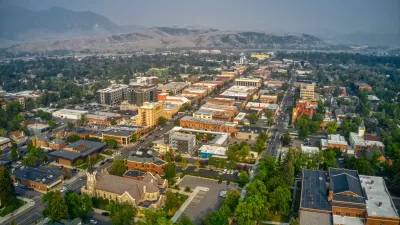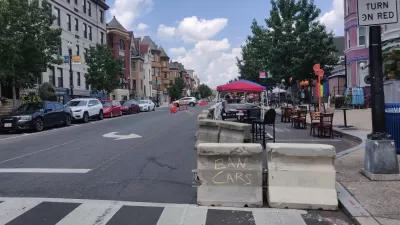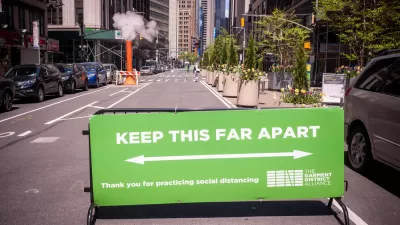Outdated frameworks for participation and cutbacks in services have soured the relationship between citizens and their governments. A new study suggests policies and legislation for reviving meaningful public engagement in governance.

"Despite the fact that governments are pumping out more and more information to citizens, trust in government has edged lower and lower, pushed in part no doubt by the lingering economic hardships and government cutbacks resulting from the recession," writes Mark Funkhouser. "Clearly the relationship between citizens and their governments needs to be reframed."
Though several techniques have been developed in recent years to help bridge this divide, a new study titled Making Public Participation Legal finds that many of them - from decision-making forums to facilitated group meetings - are not supported by the legal framework common to local U.S. governments.
"Making Public Participation Legal not only makes the case for how outdated public participation laws actually work against meaningful citizen engagement but also lays out an excellent set of policy options for strengthening public participation," notes Funkhouser. "The study includes model municipal and state public participation legislation, along with model city charter language for citizen advisory boards."
"With a little tweaking, the study says, they could be 'ideal forums for deliberative democracy practices that can better mirror the organic processes of citizen-driven collective action.'"
FULL STORY: The Failure and the Promise of Public Participation

Alabama: Trump Terminates Settlements for Black Communities Harmed By Raw Sewage
Trump deemed the landmark civil rights agreement “illegal DEI and environmental justice policy.”

Planetizen Federal Action Tracker
A weekly monitor of how Trump’s orders and actions are impacting planners and planning in America.

How Atlanta Built 7,000 Housing Units in 3 Years
The city’s comprehensive, neighborhood-focused housing strategy focuses on identifying properties and land that can be repurposed for housing and encouraging development in underserved neighborhoods.

In Both Crashes and Crime, Public Transportation is Far Safer than Driving
Contrary to popular assumptions, public transportation has far lower crash and crime rates than automobile travel. For safer communities, improve and encourage transit travel.

Report: Zoning Reforms Should Complement Nashville’s Ambitious Transit Plan
Without reform, restrictive zoning codes will limit the impact of the city’s planned transit expansion and could exclude some of the residents who depend on transit the most.

Judge Orders Release of Frozen IRA, IIJA Funding
The decision is a victory for environmental groups who charged that freezing funds for critical infrastructure and disaster response programs caused “real and irreparable harm” to communities.
Urban Design for Planners 1: Software Tools
This six-course series explores essential urban design concepts using open source software and equips planners with the tools they need to participate fully in the urban design process.
Planning for Universal Design
Learn the tools for implementing Universal Design in planning regulations.
Caltrans
Smith Gee Studio
Institute for Housing and Urban Development Studies (IHS)
City of Grandview
Harvard GSD Executive Education
Toledo-Lucas County Plan Commissions
Salt Lake City
NYU Wagner Graduate School of Public Service





























